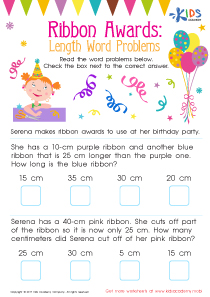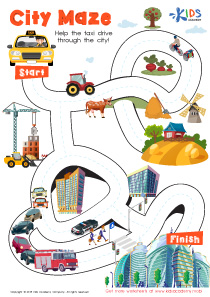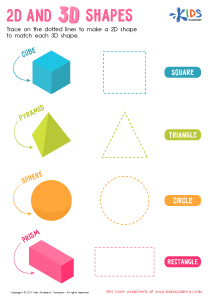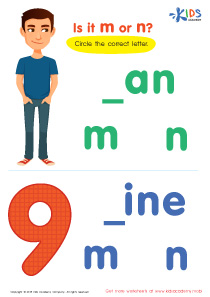Matching and Sorting Quizzes for 6-Year-Olds
3 results
3 filtered results
Clear all filters3 filtered results
-
From - To
Unlock a world of fun and interactive learning with our Matching and Sorting quizzes, tailored specifically for 6-year-olds! These engaging quizzes are meticulously designed to check understanding and provide instant, constructive feedback, ensuring a rich educational experience. Through a series of captivating challenges, children will enhance their cognitive skills by matching similar items and sorting objects into correct categories, all while being immersed in a playful environment. Perfect for reinforcing early learning concepts, our Matching and Sorting quizzes for 6-Year-Olds are the ideal tool for young learners to explore, learn, and grow with confidence. Start the adventure today!
Interactive quizzes on Matching and Sorting for 6-Year-Olds have revolutionized the way children engage with their studies, particularly in the foundational years of their education. These quizzes are designed to tap into the natural curiosity and playfulness of children, while simultaneously fostering critical thinking, pattern recognition, and categorization skills. In this digital age, where attention spans are increasingly challenged, interactive quizzes offer a captivating blend of entertainment and education, making learning both fun and effective.
Matching and Sorting exercises are particularly beneficial for 6-year-olds as they are at a developmental stage where they are beginning to understand the world around them in more complex ways. These activities encourage children to recognize similarities and differences among objects, which is essential for cognitive development. By engaging in Matching and Sorting for 6-Year-Olds, children learn to classify objects based on attributes such as shape, color, size, or type, which is a critical skill in both math and science education.
One of the primary benefits of interactive quizzes is their ability to adapt to the individual learner. Unlike traditional classroom settings where instruction is uniform, interactive quizzes on Matching and Sorting for 6-Year-Olds can adjust the level of difficulty based on the child's responses, ensuring that each child is challenged just enough to stay engaged without becoming frustrated. This personalized approach to learning helps to build confidence and encourages children to take risks and learn from their mistakes in a safe and supportive environment.
Furthermore, these quizzes incorporate immediate feedback, a crucial element in the learning process. When children receive instant feedback on their performance, it reinforces what they have learned and helps them to correct mistakes in real-time. This process of trial and error is fundamental in developing problem-solving skills and promotes a growth mindset, teaching children that intelligence and abilities can be developed with effort and perseverance.
In addition to cognitive benefits, interactive quizzes on Matching and Sorting for 6-Year-Olds also support the development of fine motor skills and hand-eye coordination. As children navigate through quizzes, clicking or tapping on the correct answers, they refine their motor skills, which are essential for handwriting, typing, and other academic activities.
Moreover, these quizzes are accessible and convenient. With the ubiquity of digital devices, children can engage with these educational activities from anywhere, be it at home, in the car, or even while waiting at the dentist's office. This accessibility ensures that learning can continue outside of the traditional classroom setting, providing children with additional opportunities to practice and reinforce their skills.
In conclusion, interactive quizzes on Matching and Sorting for 6-Year-Olds are an invaluable tool in early childhood education. They not only make learning engaging and fun but also promote essential cognitive, motor, and problem-solving skills. By integrating these interactive quizzes into their studies, parents and educators can provide children with a strong foundation for academic success and a lifelong love of learning.










